College of Science 2025 Galileo Circle Awards Announced
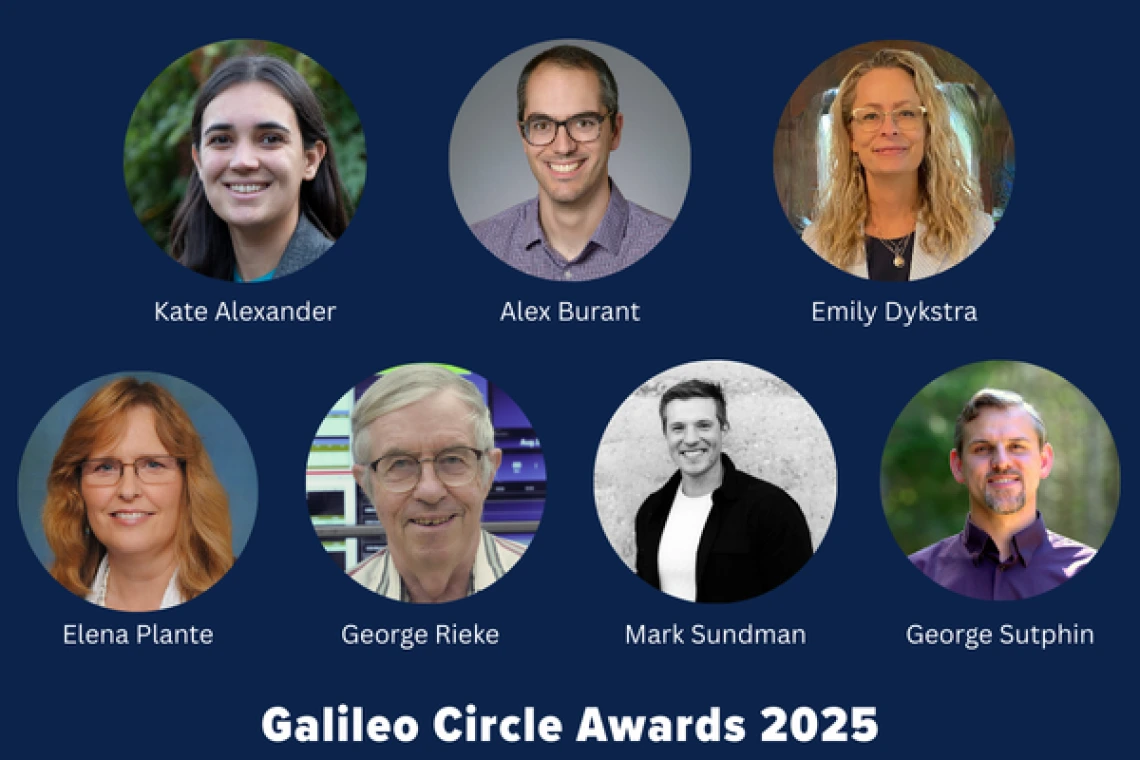
Recipients of the 2025 Galileo Circle Awards.
The College of Science is proud to recognized its 2025 Galileo Circle Awards recipients. These awards recognize some of the college's most exceptional faculty and staff and are one of the highest honors the college can bestow. The Galileo Circle Awards are made possible by the generosity of our Galileo Circle members.
At the annual Galileo Circle Awards Dinner hosted in April, College of Science Dean Carmala Garzione and members of the College of Science administration recognized the awardees and the Galileo Circle members who greatly support their efforts. Here are the award recipients:
2025 Galileo Circle Fellow
George Rieke
Regents Professor | Astronomy and Steward Observatory
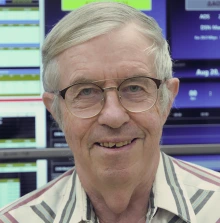
Dr. George Rieke holds a B.A. in Physics from Oberlin College, and both an M.A. and Ph.D. in Physics from Harvard University. In 1970, he joined the Lunar and Planetary Laboratory (LPL) as a postdoctoral researcher, marking the beginning of a distinguished career at the University of Arizona. Throughout his tenure, Dr. Rieke has held several key roles in LPL, the Department of Planetary Sciences, the Department of Astronomy, and the Steward Observatory. In 2004, he was named Regents Professor for his exceptional abilities and achievement of national and international distinction. Dr. Rieke served as the principal investigator for MIPS, the Multiband Imaging Photometer for NASA’s Spitzer Space Telescope. He is currently the U.S. Science Lead and Principal Investigator for MIRI, the Mid-Infrared Instrument for NASA’s James Webb Space Telescope.
A prolific scholar, Dr. Rieke has co-authored more than 580 peer-reviewed publications which have received more than 58,000 citations, making him one of the most highly cited faculty members at the University of Arizona. Throughout his career, Dr. Rieke has mentored 29 Ph.D. students and supervised more than 30 postdoctoral fellows. In 2023, he was awarded the NASA Distinguished Public Service Medal – the highest honor NASA bestows on non-government employees.
2025 Galileo Circle Curie Awardee
Kate Alexander
Assistant Professor | Astronomy and Steward Observatory
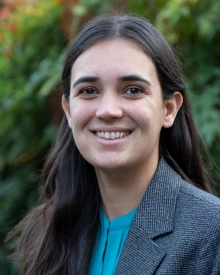
Dr. Kate Alexander earned her B.S. in Physics from Brown University and her Ph.D. in Astronomy and Astrophysics from Harvard University. During her doctoral work, Dr. Alexander was one of the first scientists to detect and model the radio counterpart of GW170817, the only astrophysical event to date detected in both light and gravitational waves. Prior to joining the faculty at the University of Arizona in 2022 as an Assistant Professor, she worked at Northwestern University as a NASA Einstein Postdoctoral Fellow and a CIERA Postdoctoral Fellow.
Dr. Alexander's research spans many facets of time-domain astrophysics: the study of the Universe's fastest-changing phenomena. Her interests include the destruction of stars by supermassive black holes and the births and deaths of extreme objects (black holes, neutron stars). She uses radio observations in combination with multi-wavelength data to study relativistic jets and other types of mass ejection in these systems. Recent recognition includes a Sloan Research Fellowship and a NASA press conference highlighting her work on the brightest gamma-ray burst ever discovered, hailed as a one-in-10,000-year event.
2025 Galileo Circle Curie Awardee
George Sutphin
Assistant Professor | Molecular and Cellular Biology and the BIO5 Institute

Dr. George Sutphin received his B.S. and M.S. degrees in Aeronautics & Astronautics from the University of Washington in 2004 and 2006, respectively. He went on to earn his Ph.D. in Molecular & Cellular Biology from the University of Washington in 2012, where his dissertation focused on the comparative genetics of aging. From 2012 to 2017, Dr. Sutphin conducted postdoctoral training in aging genetics at The Jackson Laboratory.
Dr. Sutphin’s research explores the molecular mechanisms of aging and age-associated diseases, using C. elegans, cell culture, and mice as model systems. His work focuses on the intersection of metabolism and cellular stress responses, with a secondary emphasis on high-content methods development in C. elegans. His recent work has identified interventions targeting the tryptophan-kynurenine metabolic pathway that extend healthy lifespan and enhance stress resistance and has begun to understand the importance of metals in cellular stress response. Dr. Sutphin currently serves as Chair and CEO of the American Aging Association.
2025 Galileo Circle Copernicus Awardees
Alex Burant
Assistant Professor of Practice | Physics
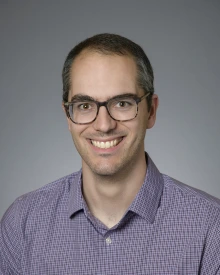
Dr. Alex Burant holds a B.S. in Physics from James Madison University and a Ph.D. in Physics from the University of North Carolina at Chapel Hill. His doctoral research focused on biomedical physics, specifically characterizing inefficiencies in the polarization process of xenon-129 during continuous-flow spin exchange optical pumping. Since joining the department in 2018, Dr. Burant has transformed the way the Physics Department teaches and interacts with students in lower-division classes. He has been a contributing member of the Faculty Learning Community from his first semester at the University, bringing a strong commitment to evidence-based teaching practices.
In every lecture, he incorporates think-pair-share activities and implements group-based discussions. A hallmark of Dr. Burant’s teaching methodology is his use of a flipped classroom model. Through video lectures, he allows students the flexibility to navigate the material at their own pace before in-person sessions. This approach has been met with high praise from students who consistently comment on the "freedom and flexibility" and its positive impact on their learning experience. Most recently, Dr. Burant played a leading role in the development of PHYS 110: Introductory Physics in Studio Style, a course designed to further enhance student engagement and success.
2025 Galileo Circle Copernicus Awardee
Emily Dykstra
Assistant Director, Introductory Biology Laboratory | Molecular and Cellular Biology
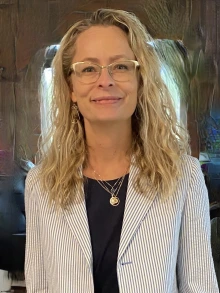
Dr. Emily Dykstra earned a B.S. and M.S. in Biochemistry from the University of Arizona, a Master’s in Secondary Science Education from the City College of New York, and a Ph.D. in Teaching and Teacher Education from the University of Arizona. Since 2012, Dr. Dykstra has been a faculty member in the Department of Molecular and Cellular Biology, where she has served as both the Assistant Director and Director of the Introductory Biology Laboratory course. She is a dedicated educator, and her commitment to enhancing student experiences and outcomes has impacted thousands of learners.
Dr. Dykstra played an integral role in the development and implementation of a novel introductory biology laboratory curriculum that centers students as scientists. She has mentored numerous undergraduate and graduate teaching assistants, emphasizing student-centered teaching values, reflective teaching, and a commitment to equity. Dr. Dykstra is currently a co-lead on a University of Arizona CUES Spanning Boundaries grant investigating teaching team dynamics and possible connections to student outcomes. She has worked to continually improve student experience and outcomes in the course and was a. She has combined her passion for science and education to continually work toward improving student experience and outcomes.
2025 Galileo Circle Postdoc Awardee
Mark Sundman
Postdoctoral Research Scientist | Brain Imaging and TMS Laboratory, Psychology

Dr. Mark Sundman earned a B.S in Exercise Science from Elon University, an M.S. in Integrative Medicine from George Washington University, and both an M.A. in Psychology and a Ph.D. in Cognition & Neural Systems from the University of Arizona. His diverse education background and research experiences have shaped a multidisciplinary framework to holistically investigate the aging brain.
His research integrates expertise in Transcranial Magnetic Stimulation (TMS) and Magnetic Resonance Imaging (MRI) to develop novel biomarkers and therapies aimed at detecting early signs of age-related cognitive dysfunction and altering the trajectory of brain aging to prevent Alzheimer's Disease. In recognition of his scholarly contributions, Dr. Sundman was recently awarded the prestigious EUREKA (Exceptional, Unconventional Research Enabling Knowledge Acceleration) Prize from the National Institutes of Health for his innovative work on Alzheimer’s prevention. His research continues to push the boundaries of how we understand and address aging-related cognitive challenges.
2025 Rieke Prize Awardee
Elena Plante
Professor | Speech, Language, and Hearing Sciences
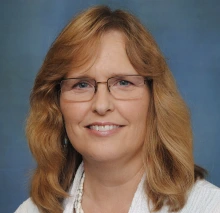
Dr. Elena Plante is a Professor in the Department of Speech, Language, and Hearing Sciences. She conducts research primarily in developmental language disorder (DLD). Dr. Plante’s work in this area began over 30 years ago with investigations of the neural mechanisms of DLD using cutting edge imaging techniques. Her research then expanded to include the cognitive learning mechanisms that explain language acquisition and how these mechanisms function in people with DLD. More recently, Dr. Plante has focused on improving the accurate diagnosis of DLD and development of novel intervention techniques for its treatment. Her work has been funded continuously since 1992 by grants from the National Institute on Deafness and Other Communication Disorders and the National Institute on Aging and the Institute for Educational Science.
Dr. Plante has a long record of exemplary service to the profession of speech-language pathology. Her election to the role of Vice-President for Science and Research of the American Speech, Language, and Hearing Association (ASHA) reflects the respect of her science and leadership by her peers across the U.S. She has also served on the Language and Communication review panel for the National Institutes of Health, has been a member of the Research Speech, Language, and Hearing Sciences, and Scientific Affairs Committee of ASHA, and has been a leader of ASHA’s Lessons for Success Program.
2025 Rieke Prize Honorees
Matthias Mehl
Professor | Psychology
Ilaria Pascucci
Professor | Planetary Sciences and Lunar and Planetary Laboratory
Jeff Pyun
Professor | Chemistry and Biochemistry

